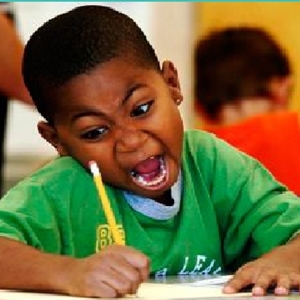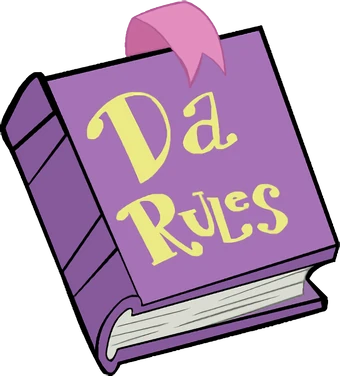This week I have learned the importance of publishing blog posts using links that actually redirect to the blog - not the editor! Whoops. So an especially big thank-you to everyone who checked after I had fixed that issue and a ma-HOO-sive thanks to @nichola_wilkin who pointed it out to me. I'll do better this week... Also, I'm going to try and be a little briefer - ya'll have lives to live!

tips for calming playground behaviour!
This is a follow-up to last week's post where I shared my advice on how to stop playground behaviour before it even starts by teaching children about personal space and how to respect and protect it. You can read that here if you missed it. It's not essential to this week's post though.
This week, I am going to look at five ways to deal with playground behaviour after it has happened.

Conflict exists because someone feels violated.
Talk, write, say it backwards.
Talk, write, say it backwards.
Stick to the rule that was broken.
Symptoms are not causes.
Punishment doesn't always help.
Punishment doesn't always help.
We've all been there...
You're about to begin teaching and then BOOM! two children come in thoroughly displeased with each other. If you're lucky, you'll have a synopsis of the problem from whoever was on duty; if you're unlucky, you'll have a longer synopsis from a third-party child. Either way, your lesson is going to be delayed.
Or is it?
I am a fan of restorative justice, I think it is a great way to encourage children to think about the feelings of others and consider how their actions have consequences for people beyond themselves. However, if done properly, it is a lengthy process; if rushed it can end up doing more harm than good. So what's the quick-launch version?
Don't deal with it.
Well, not immediately anyway. Remember, you are the teacher; you are in charge. Not just of the two or so children concerned, but the rest of the class as well, and the rest of the class want to learn. So let them. Thank whoever gave you the synopsis (however useful it was or wasn't) and tell the children to take their seats because the lesson needs to begin (if the children concerned happen to be sitting next to each other, maybe move them farther apart for the next hour). Tell the rest of the class to ignore the current situation; reassure them that it will be handled, and continue with the lesson. The sooner you can regain stability in the room, the better.
Here's the thing - if you're going to retain the authority to resolve the issue, you have to be seen (psychologically at least) as being in control of the whole situation. That means dealing with it when you are ready. Do not let the children dictate how your time will be spent.
When the lesson is up and running and the children are working independently, call the children involved over to your desk or to a quiet area. Remind the children that they are only involved if they actually witnessed the event. You are not interested in anyone who heard something or thinks they saw something. I like to use this as an opportunity to remind children about my no gossiping rule (for the record, we agree in September that 'gossip' is anything you have repeated but can't prove or anything you are told but can't prove - I'll do a separate post on that). When they are there (2, 4, 18 of them) tell them very calmly that you will be listening to each of them but you can't do it all at the same time, so they will need to be patient. You could ask if anyone wants to go first or you could just pick for yourself; it doesn't matter.
Tip #1
Conflict exists because someone feels violated.
'Violated' is a strong word, but it's true. As the person who is going to resolve the issue, you need to find out how those involved felt wronged. I do this with a simple question:
Are you mad, sad or glad?
Distilling the entire range of the human emotional gamut to just three options is incredibly helpful and I will be forever grateful to my amazing wife for introducing me to this wonderful phrase.
Most of the time, they will not be 'glad'. This leaves 'mad' or 'sad'. Whichever one they choose, ask them why they feel that way and write it down. Do this with all children involved. By now, you should have a pretty clear idea on who is at fault. It is not always straightforward as these things have usually escalated several steps away from a simple x did y to z. However, you'll have enough to go on.
Again, all of this is when you are ready; when you have time. The rest of the class come first so keep teaching as a priority. I'm not going to lie, it might mean dealing with things at lunchtime.
But, wait, what? I want my lunchtime!
I hear you...
Tip #2
Talk, write, say it backwards.
When the rest of the class is beavering away, give the children involved a piece of paper and have them write down what happened. Informing them that other teachers might have to read it if the issue is unresolved usually weeds out the rubberneckers as well as any superfluous details. I like to insist on bullet points.
Collect these in when they are done (or have the children leave in on your desk / designated area) then allow them to get on with the learning.
When you have time, read through all the statements. If this is going to take a while, let those involved know a rough time frame - you don't want them going home saying that nothing was done about this gross miscarriage of justice. Whatever your time estimate is, add an hour.
Ideally though, you can read through things very quickly, especially if they've bullet-pointed them, and you'll have a rough idea of what happened.
 |
| i.imgflip.com/3cyz08.jpg |
Here's the clever bit...
Get the children involved to stay in at lunchtime or break time the next day (I know, this does involve some time-loss on your part - let them know that). Some of the time the children will have decided that it really wasn't worth it after all and have decided to shake hands and forget about it. Brilliant. Tell them that you're keeping a record of it and send them on their way.
I know teachers who insist on calling them in anyway and having a whole chat about friendship and yaddah, yaddah. Why? What's the point? You wanted it resolved; it's resolved. Smile and move on.
However, if it is still a thing. Have them in and ask them to tell you what happened... backwards. Yup. Most of the time, if it is an event that actually happened, they will be able to recall it in reverse. If it's a made-up thing, they will struggle. This is not a hard-and-fast rule but it is fairly reliable. One thing to listen out for is if the child corrects themselves without prompting; that can be a sign of an honest child making sure they have mentioned everything.
Now let me share a secret with you; it might not be popular:
It doesn't matter. You weren't there. You can never prove things one way or the other. All you can do is collect enough evidence to strongly suggest a likely truth (unless someone confesses). And that's okay. You don't need to prove anything. You've already listened to the children. You're already easing that violation they felt. You've done it all in a non-accusatory, caring way.
Tip #3
Stick to the rule that was broken.
Most schools have their list of rules displayed pretty much everywhere. They are usually the same as well (be kind, be honest, be respectful - there may be others but they will essentially be repeats of those three). So all you do as the teacher, having heard everything, is ask the children which of the school rules has been broken.
Absolutely every behaviour can be boiled down to those three. Often it can be boiled down to a combination of be kind and be respectful. So you don't have to deal with whether or not little Johnny was punched or kicked or bitten or psychically attacked from afar - all those acts are unkind. So you deal with the unkindness. Most children will admit to generic unkindness or disrespect far more quickly than a specific one.
Often, this results in the children agreeing that they have both (or all) been unkind to each other and a resolution can be reached.
 |
| vignette.wikia.nocookie.net |
That resolution might be simply not to talk to or play with each other for a while. That's okay. I am not a believer that everyone should 'get over it and make friends.' That's not a useful life skill. Sometimes people don't like people. That's fine. We need to teach children that it is okay to disagree with someone else's ideological view of the world. But we should be able to tolerate it; to agree to disagree. Also, some children are going to be cross at the outcome. That's okay, too. Please never tell a child to 'sort their face out', 'get rid of that frown' or 'put a smile on that face.' They know how they feel, let them feel it.
What if there is no resolution?
Tip #4
Symptoms are not causes.
If the children can't reach a solution on their own, you should have enough to go on to establish who was more at fault. Inevitably you are going to face situations where you genuinely don't know who was to blame. So tell the children. Explain that you weren't there so it wouldn't be fair for you to make any accusations.
But keep an eye out. If the same child seems to be involved in multiple disruptions, alarm bells should be wringing. Especially if other teachers refer to them as a 'trouble-maker' or even 'oh, them, I might have known they'd be involved.' Ding ding ding ding!!! Repeated bad behaviour is nearly always a symptom of something deeper. The children who push back the most are generally the ones who need the biggest hugs (not literally, don't make yourself a safeguarding issue!).
It might not be appropriate for you to take these children to one side and start asking them about their homelife - although you could hold a 'circle time' afternoon where these issues are brought up as a social story and see what happens. It might be best for you to talk to the SENDCo (Special Needs, for anyone not in the UK) at your school and make sure that people are aware that something a little deeper might be at play.
I said I'd be briefer, didn't I?
Tip #5
Punishment doesn't always help.
It doesn't. I'm not advocating no discipline, nor am I saying that there shouldn't be consequences for actions; there totally should. But please stop and think about the punishments you dole out. They should fit the crime.
You can ask the child what punishment they think would be appropriate - they'll often surprise you with how harsh they are. If you think they are going to be too lenient on themselves, ask how they would feel if they were the victim, what sort of punishment would they want to see?
The most effective method I have ever used, admittedly in Year 6 (grade 5) so there was a level of maturity to it, was to establish punitive measures as a whole class in September. We'd go through the rules (whole school and in-class) and discuss which punishments would be appropriate. Everyone agrees; everyone signs. You can then trot them out whenever needed. Be warned though, I have fallen foul of this - my TA and I were talking during a 'silent working' period and the children decided we had broken a class rule so we had to circle our name (see here, scroll down to Behaviour Chart - this is an early post, apologies for the formatting)!
Be wary of a blanket 'you will miss your playtime' rule. Often the children who misbehave are the very children who need to release their energy and frustrations. Playtime is likely the only time they have to do that; denying it is creating more problems.
For serious infractions, I have the children write a letter, not to the victim, to their own mother. Or whichever primary caregiver has that role. They have to start it with Dear mum, today I... Suddenly they are confronted with their actions in a very real way. I have seen the most stubborn child experience an epiphany and apologise so hard purely because they had to tell their mother. They still had to write the letter but I told them that they should add the apology bit.
Finally, please think very carefully before outsourcing your punishments. There is nothing more heartbreaking than seeing children sat outside an adult's office during playtime. It's public shaming. What are they learning? I am a bad person. I hate school. It is okay to humiliate people. Sorry if that sounds a bit social-justice-warrior but it's one of my triggers. If you have decided a child needs to be punished then you should do the punishing. Just be aware that sometimes, it'll only make things worse.
I have had great success by providing paper with people and thought or speech bubbled and letting the children write what they wish they had said or what they will say next time.
Anyway, I have gone on way too long and I promised to attempt brevity. I'll work on it.
Thanks for reading this far - I'd love to know your thoughts and opinions on behaviour management. I have more tips involving NLP and gentle hypnosis but I think I'll save those for a later post!
If you liked what you read, or found it helpful in anyway, please share this blog with your friends. If you thought it was terrible, spam your enemies with it. As always, please leave a comment either at the bottom or on Twitter, and take care of yourselves.
 |
| I know, I'm a little late... |
This week's challenge, audibly say hello to at least three people you wouldn't usually say hello to.
Carl Headley-Morris
@Mr_M_Musings mrmteacher@gmail.com bit.ly/carlslearningplace

Comments
Post a Comment